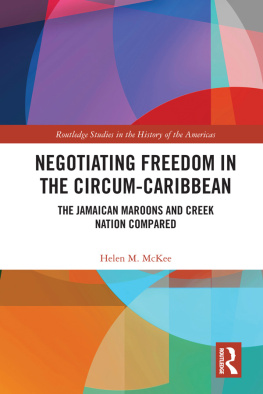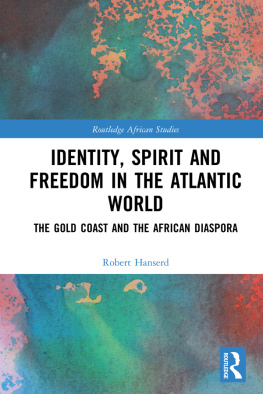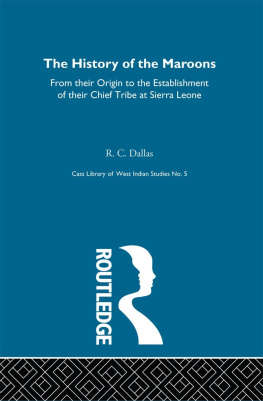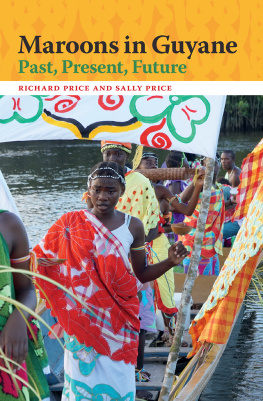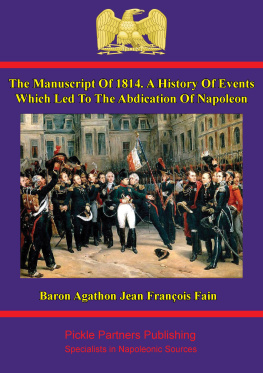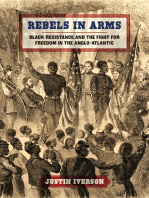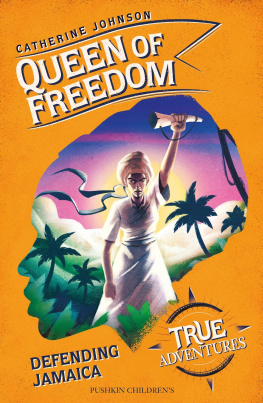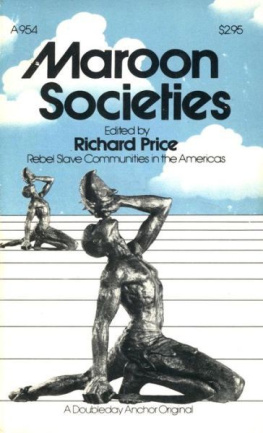Your time
is done now
Slavery, Resistance and Defeat:
the Maroon Trials of Dominica (1813-1814)

Copyright Polly Patullo 2015
Introduction copyright Bernard Wiltshire 2015
All rights reserved.
First published in the United States by Monthly Review Press 2015
First published in Great Britain by Papillote Press 2015
Library of Congress Cataloging-in-Publication Data available from the publisher.
ISBN: 978-1-58367-558-8 pbk
ISBN: 978-1-58367-559-5 cloth
Typeset in Freight Text
Text and cover design by Andy Dark
Monthly Review Press
146 West 29th Street, Suite 6W
New York, NY 10001
monthlyreview.org | Papillote Press
23 Rozel Road
London, SW4 0EY
United Kingdom
and Trafalgar, Dominica |
5 4 3 2 1 | papillotepress.co.uk |
Your time
is done now
Your time
is done now
Slavery, Resistance and Defeat:
the Maroon Trials of Dominica (1813-1814)

First published in Great Britain in 2015
Polly Pattullo 2015
introduction Bernard Wiltshire 2015
All rights reserved
No part of this publication may be reproduced, stored in a retrieval system or transmitted in any form or by any means, electronic, mechanical, photocopying, recording or otherwise, without the prior permission of the copyright owner.
A CIP catalogue record for this book is available from the British Library.
Typeset in Freight Text
Design by Andy Dark
Cover design by Andy Dark
Printed by Printondemand-Worldwide.com , UK
ISBN: 978-0-9571187-7-5
Papillote Press
23 Rozel Road
London SW4 0EY
United Kingdom
and Trafalgar, Dominica
www.papillotepress.co.uk
@papillotepress
Many were brought to Roseau and butchered in cold blood; and there is a well there, which though of sweet water, and in the centre of the market place, remains unused to this day, from a belief that it is defiled with the blood of these unfortunate people.
Joseph Sturge and Thomas Harvey
The West Indies in 1837
Executed in the market place, Roseau, 1813 and 1814
Guillaume, Buoy, Jean Pierre, Peter, Victor, Joe, Francoise, Adelaide, Ebo, Zabet, Michel, Quashie, Charlie
Acknowledgements
The documents of the Maroon trials of Dominica (1813-1814) that form the core of this book are produced by kind permission of The National Archives, United Kingdom. I was first alerted to these manuscripts by my friend Catherine Lord - for which many, many thanks, since the idea for the book sprang from that first encounter. Various people read the typescript at various times in its development - I am extremely grateful to Annie Davies, Nigel Fountain, Peter Hulme, and, again to Catherine Lord, for their enthusiasm, acumen and encouragement. Proof-reading - and far more - was by Jeannette Page: thanks to her eagle eye and generosity.
My thanks also go to Roberta Allport for research and Ros Asquith for sleuthing. Others who kindly advised on general or specific points are: Gad Heuman, Barry Higman, Lennox Honychurch, Alick Lazare, Lisa Paravisini-Gebert, Diana Paton; and Bernard Wiltshire for his introduction and for many conversations. Appreciations to Lambert Charles for bringing me wahwah and to Louisette Auguiste for showing me the wahwah vine. To Paul Crask and Celia Sorhaindo for our trip to Jacko Steps and beyond.
Andy Dark, the designer, was, as usual, infinitely patient with textual details and infinitely creative in solving visual and typographical problems and for magically conjuring up the cover.
Many thanks to the National Archives, United Kingdom, and its helpful staff and likewise to the National Archives of Dominica in Roseau; the London Library; and the National Library of Scotland. Polly Pattullo
POLLY PATTULLO is the publisher of Papillote Press and a former journalist from the UK. She is the author of Last Resorts: the Cost of Tourism in the Caribbean and Fire from the Mountain: the Tragedy of Montserrat and the Betrayal of its People. She is the editor, with Celia Sorhaindo, of Home Again: Stories of Migration and Return and, with Kathy MacLean and Karen Mears, compiled the educational pack, A Caribbean History: Hillsborough - a Plantation in Dominica. Both are published by Papillote Press. She lives in London and Dominica.
BERNARD WILTSHIRE, a native born Dominican, was educated at the universities of York and London in the UK; and at the University of Columbia in New York. He lectured in African, Caribbean and Black American history at the University of the West Indies in Jamaica, the City University of New York and Manhattan Community College, New York. He was a University of the West Indies extra-mural tutor in Dominica and deputy leader of the Inner London Education Authority in the UK. He is a former Attorney General of Dominica.
Notes and Credits
The main body of the text consists of transcriptions of documents held in The National Archives, United Kingdom. The memoirs of William Bremner are taken from a typescript of the original. All attempts to contact the copyright holder of these memoirs have been unsuccessful; copies of the microfilm of the typescript are held at the University of the West Indies, Mona (Jamaica), and the National Library of Scotland.
Punctuation has occasionally been modernised for clarification. Stylistic features, such as upper- or lower-case letters, have been standardised. Omissions are marked by ellipses. Editorial inserts appear in square brackets. Square brackets also indicate uncertainties in transcription: missing words are shown as [missing word/s]; illegible word/s are indicated as [illegible]; and guessed words are followed by [?].
Abbreviations
The following abbreviations have been used for text references, credits and endnotes:
TNA: The National Archives, United Kingdom
CO: Colonial Office
WB: Memoirs of William Bremner in Dominica
NAD: National Archives Dominica
Picture Credits
Introduction
newspaper notices: NAD; Hillsborough runaways list:
Quarry Bank Mill, Styal. Library of Congress
1813 : Suppression of the Maroons begins
TNA
1814: Under martial law
NAD
1814: A governors defence
; Ainslie: British Museum; sword: Peter Finer catalogue, 2005
1815: Maroons defeated, Ainslie sacked
copyright Richard Croft
After: memory and memorials
Independence Day parade: Polly Pattullo; libation: Celia Sorhaindo
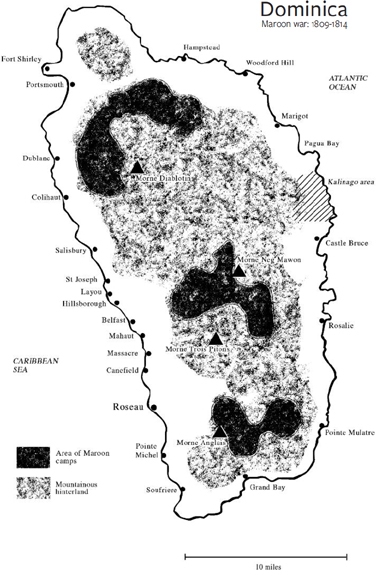
Contents

| Introduction |

Your Time Is Done Now is a book about resistance to slavery. Not much is known of the men and women who participated in this struggle and made their own Maroon communities on the Caribbean island of Dominica for their voices have remained hidden from history. But through the transcripts of the trials (held in 1813 and 1814) and published here for the first time, we hear the stories of those who had lived as free people in the forests as they stood in the dock.


